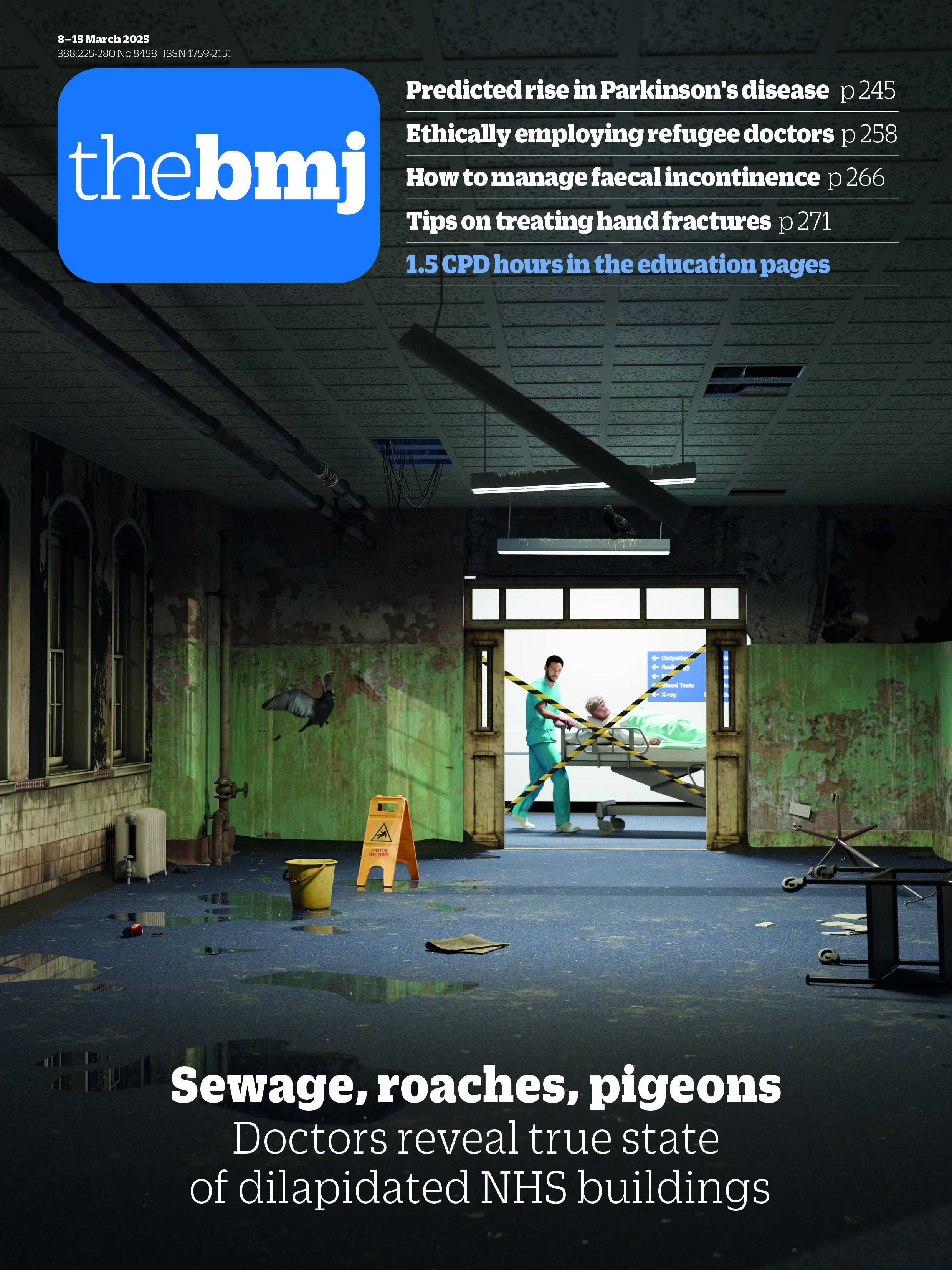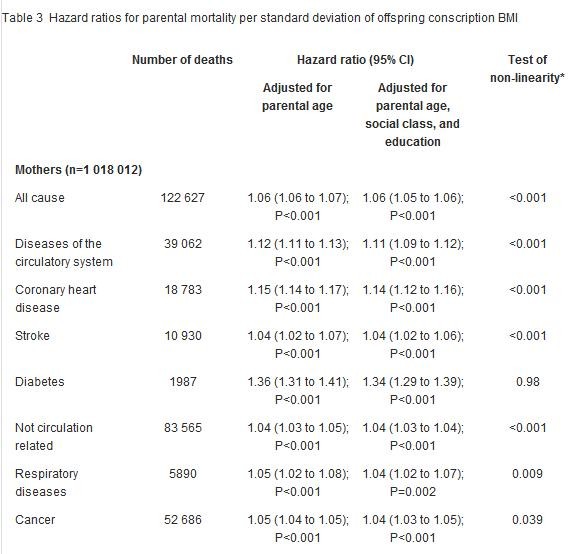子供のBMIは、親の全死亡と心血管死と相関している、という報告。
スウェーデンの100万組以上の一般住民親子のデータベースで、50年間追跡の死亡調査。子どものBMIと親の死亡との間に正の相関がみられた。全死亡および心血管死では親自身のBMIを指標とするよりも強い相関が認められた。
著者らはこのことは従来の観察試験では過小評価されていた可能性があると指摘している。
The association between BMI and mortality using offspring BMI as an indicator of own BMI: large intergenerational mortality study

Objectives To obtain valid estimates of the association between body mass index (BMI) and mortality by using offspring BMI as an instrumental variable for own BMI.
Design Cohort study based on record linkage, with 50 years of follow-up for mortality. Associations of offspring BMI with all cause and cause specific maternal and paternal mortality were estimated as hazard ratios per standard deviation of offspring BMI.
Setting A large intergenerational prospective population based database covering the general population of Sweden.
Participants More than one million Swedish parent-son pairs.
Results The final dataset analysed contained information on 1 018 012 mother-son pairs (122 677 maternal deaths) and 1 004 617 father-son pairs (242 126 paternal deaths). For some causes of death, the patterns of associations between offspring BMI and mortality were similar to those seen for own BMI and mortality in previous studies. Parental mortality from diabetes, coronary heart disease, and kidney cancer had the strongest positive associations with offspring BMI (for example, hazard ratio (HR) for coronary heart disease per standard deviation increase in offspring BMI for mothers 1.15, 95% CI 1.14 to 1.17 and for fathers 1.10, 1.09 to 1.11). However, in contrast to the inverse association of own BMI with lung cancer and respiratory disease mortality seen in other studies, there was a positive association between offspring BMI and lung cancer mortality in mothers (1.12, 1.09 to 1.15) and fathers (1.03, 1.02 to 1.05) and between offspring BMI and respiratory mortality in mothers (1.05, 1.02 to 1.08) and fathers (1.02, 1.00 to 1.04). Associations of own BMI and offspring BMI with all cause, cardiovascular disease related, and non-cardiovascular disease related mortality were compared in a subset of father-son pairs (n=72 815). When offspring BMI was used as an instrumental variable for paternal BMI, the causal association between BMI and paternal cardiovascular disease mortality (HR per standard deviation of BMI 1.82, 95% CI 1.17 to 2.83) was stronger than that indicated by the directly observed association between own BMI and cardiovascular disease mortality (1.45, 1.31 to 1.61).
Conclusions Use of offspring BMI as a predictor of own BMI, a technique that avoids problems of reverse causality, suggests that positive associations of BMI with all cause and cardiovascular mortality may be underestimated in conventional observational studies. Use of offspring BMI instead of own BMI in analyses of respiratory disease and lung cancer mortality, for which previous studies have reported consistent and strong inverse associations with own BMI, suggests that such studies have overstated the apparent adverse consequences of lower BMI with respect to these outcomes.


コメント